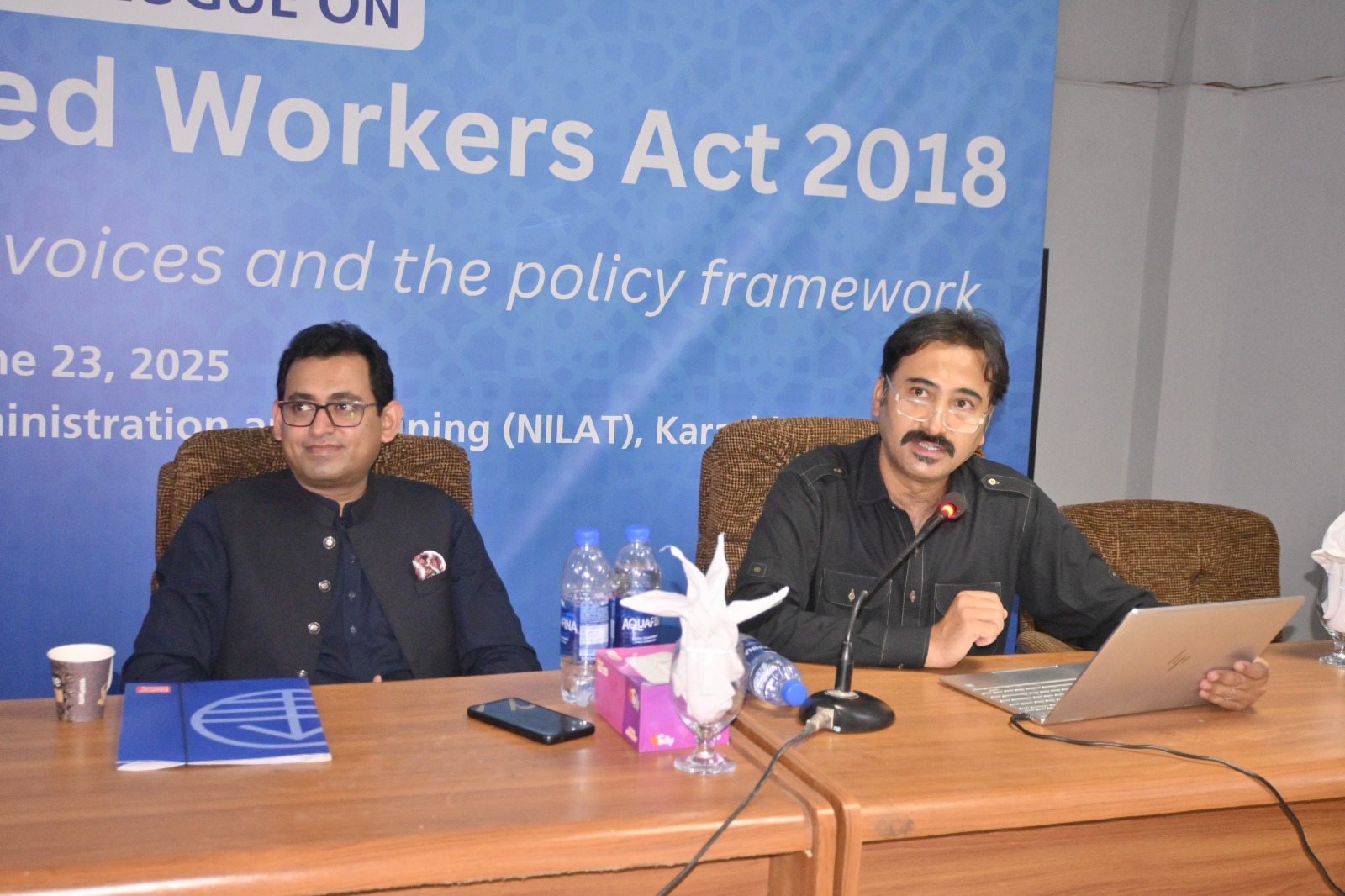Key stakeholders at a provincial dialogue held in Karachi have raised serious concerns over institutional weaknesses and financial shortfalls delaying the implementation of the Sindh Home-Based Workers Act (HbWA) 2018. The dialogue, jointly organized by the Sindh Human Rights Commission (SHRC), Friedrich Ebert Stiftung (FES), and Bhittai Social Watch & Advocacy (BSWA), took place at the National Institute of Labor Administration Training (NILAT).
Presiding over the event, SHRC Chairperson Mr. Iqbal Ahmed Detho said that despite the Act being a landmark achievement for labor rights in Sindh, its practical impact remains limited due to a lack of coordinated institutional mechanisms and adequate budgetary support.
“Laws need more than words—they require departments working in sync, consistent reforms, and concrete financial backing,” Detho remarked. He praised FES for its continued support, particularly in efforts to revitalize NILAT, and urged the provincial Labor Department to reintegrate the institute into the government’s development budget. Citing progress in gender and legal training modules in Tando Jam’s Local Government Training Institute, he highlighted the potential for successful cross-sector collaboration.
FES Program Advisor Mr. Abdullah Dayo called for Pakistan to ratify the ILO Convention 177, which protects the rights of home-based workers (HBWs). He also urged the provincial government to establish registration desks at the divisional level to make the registration process more accessible.
Presenting key findings from a regional consultation in Sukkur, Mr. Kashif Siddiqui pointed to several implementation bottlenecks including a complex and centralized registration system, lack of procedural clarity, and instances of gender-based and domestic violence reported by workers.
Speaking on behalf of the provincial law department, Additional Secretary Mr. Asadullah Bhatti highlighted the importance of building legal literacy and institutional capacity. He advocated for the harmonized implementation of policies and laws across relevant departments to ensure more cohesive outcomes.
Representatives of HBW organizations echoed these concerns. Ms. Bushra Arain (Union of Lady Health Workers), Ms. Kausar Nisa (HBW Federation, Sanghar), Ms. Maheen (HomeNet Pakistan), and Ms. Zahra Khan (Federation of HBWs, Karachi) all welcomed Sindh’s progressive legal framework but criticized the lack of execution on the ground. They recommended embedding core human rights protections directly into the legislation.
Mr. Ansar, representing persons with disabilities, noted that the current implementation framework largely overlooks the needs of PWDs, calling for greater inclusion and adaptive support systems.
The dialogue concluded with a consensus among stakeholders on the urgent need for reforms that go beyond policy declarations—ensuring that the protections envisioned in the Sindh HbWA 2018 translate into meaningful change for thousands of home-based workers across the province.

